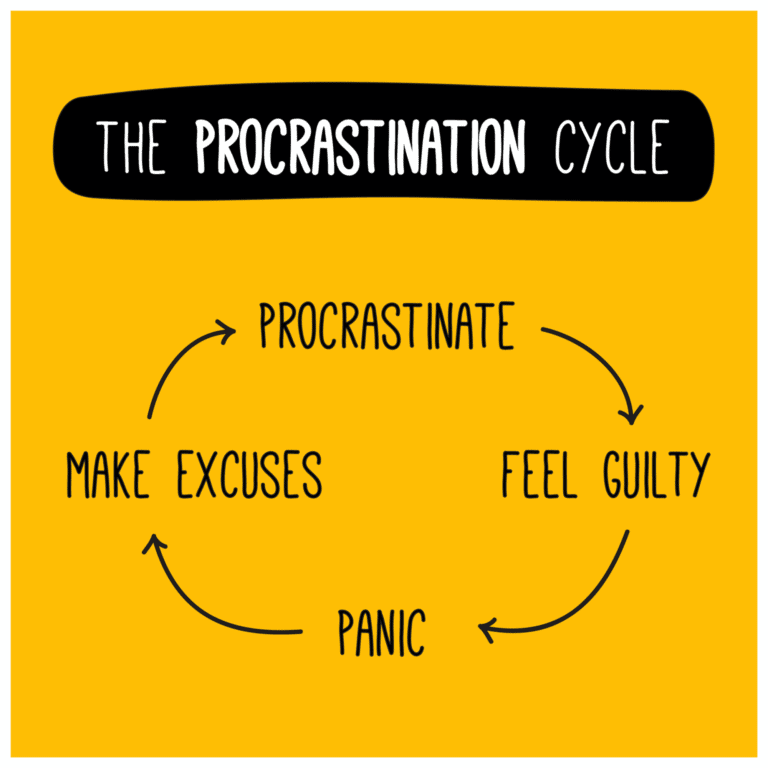
Isn't it the worst feeling in the world to have a long list of things to do yet lack motivation to get started? Everyone puts off doing things occasionally, but when we put off doing things frequently, it becomes a habit. All of us have the capacity to do great things in life, but occasionally we fall short.
One thing that stands in the way of reaching our full potential is procrastination. We lose productivity as a result of it. Sometimes we put off doing our responsibilities for longer than we even know. Sometimes, though, we are just unable to stop ourselves from procrastinating even when we are aware of it.
There are various ways in which procrastination might manifest itself. We begin putting off things because there's another pressing assignment, spending more time on some insignificant than on vital ones, and believing that there will be enough time to finish the work. Some people procrastinate regularly, while others only sometimes do so. Regardless of one's social class, procrastination has the same fundamental causes, therefore it's important to recognize why we do it and what triggers it.
You're not motivated or engaged.
It does not follow that everyone will be likewise passionate about or interested in a given vocation just because someone else is. Everybody has unique passions and areas of interest. If you are not feeling the trigger when you are working on your responsibilities, then you will become exhausted and will begin to look for ways to escape them. This is a well-known and significant cause of procrastination.
For work to be completed as effectively and efficiently as possible, there are those who consider that it is critical to be completely motivated before beginning any task. I suppose that this is too high of a standard. There are occasions when you have to start working and making some progress before the "real" motivation shows up. You are inspired to keep working when you begin to see the fruits of your labor. Therefore, there is never a better moment than "now" to begin working on a project!
You start to feel overwhelmed
It's quite simple to give up when you have a long list of things to complete. This is especially true when handling large and challenging assignments. You begin to convince yourself that it would be better to not even begin the work because you won't have enough time to do it. Rather than getting to work, you simply put off your work.
You begin promising yourself that you will begin working on the following task promptly, but you never follow through on these commitments! Thus, the old proverb "How do you eat an elephant?" has the key to solving this conundrum. A mouthful at a time. The best course of action is to divide the more difficult and large jobs into smaller ones. To finish the lesser chores till the work is finished, you need set a deadline.
You're afraid of failing.
Some people's dread of failing can be quite damaging. They consider failure to be an unchangeable, permanent phenomenon. They believe that failing will always be associated with their bad reputation. When these people don't accomplish their goals, it negatively affects their self-esteem and causes them to become fearful. Their lack of confidence prevents them from acting appropriately until the outcomes are not completely assured. Naturally, we are unable to promise complete success in whatever we attempt. We cease learning when we stop taking chances. As a result, procrastination becomes a regular occurrence and an endless cycle for them due to their fear of failing.
You lack certain abilities.
Achieving new life goals and objectives necessitates ongoing personal development. To achieve your new life goals, you must acquire new abilities and information. This is the main purpose of life's journey. Regretfully, a lot of people never come to this realization in their lifetime. They begin to view a lack of expertise or understanding as an insurmountable barrier and often give up on their goals. Due to a lack of abilities, they start to put off their aspirations. However, keep in mind that successful people never give up on their dreams.
It is imperative that these individuals conduct an honest evaluation of the competencies needed to accomplish their objectives and initiate training programs accordingly. When you procrastinate, you become sluggish and lose the ability to accomplish goals in life. Thus, never ever give up on your dreams because of it.